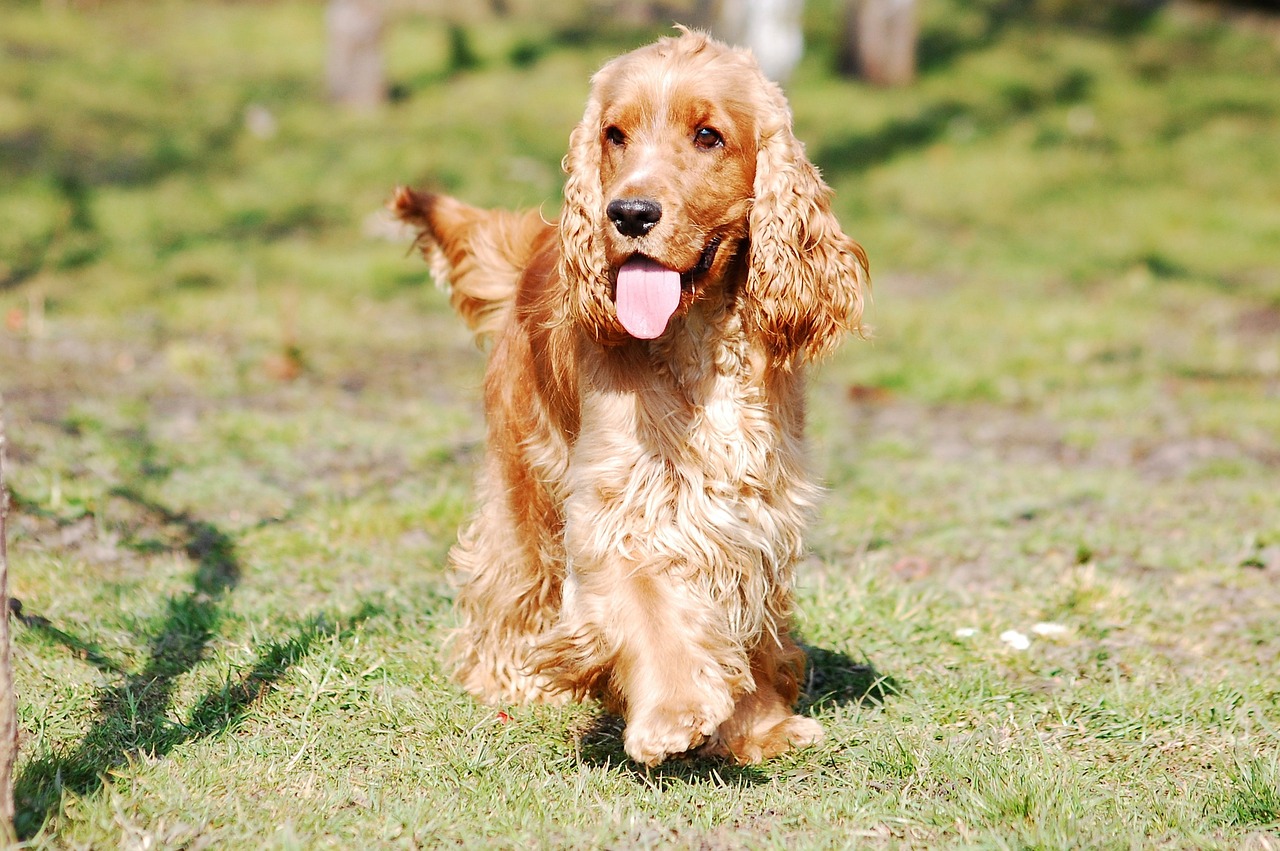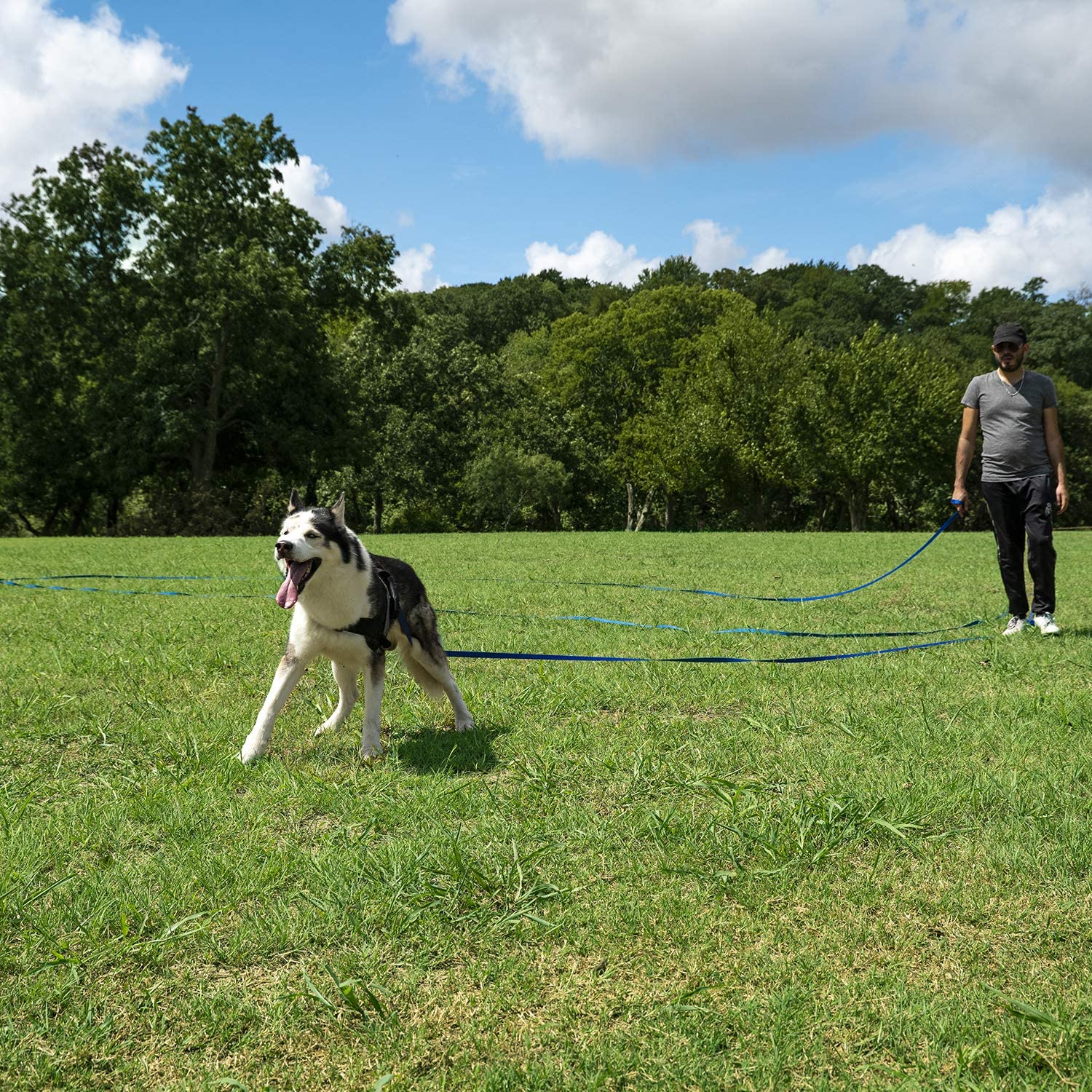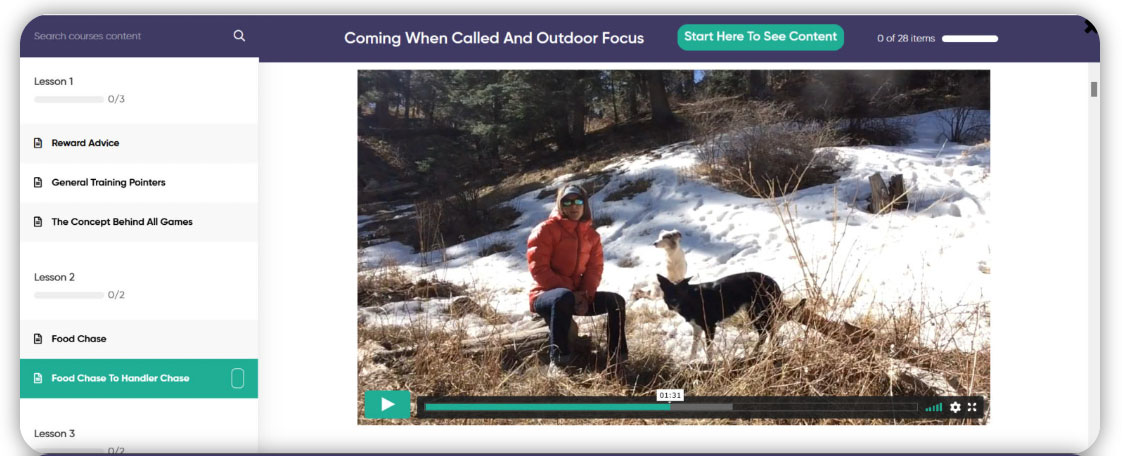
Training your cocker spaniel to come when called is an essential aspect of their obedience training. As a breed, cocker spaniels are known for their high energy and playful nature, making them an excellent companion for those who enjoy an active lifestyle. However, their independent streak and strong hunting instincts can make it challenging to get them to return when called.
In this article, we will provide tips and techniques to help you train your cocker spaniel to come when called, ensuring that your pet is safe, well-behaved, and able to enjoy off-leash activities with you.
Note: For a complete training, we highly recommend this SpiritDog Online Training Course “Coming When Called”.
1. Start with a Strong Foundation
Before you begin training your cocker spaniel to come when called, it’s crucial to establish a strong bond with your pet. Spend time playing with your dog, engaging in activities they enjoy, and providing positive reinforcement through praise and treats. Building trust and a strong connection with your cocker spaniel will make them more likely to respond positively to your commands.
2. Choose a Distinct Command Word
Select a specific word or phrase for the recall command, such as “come” or “here.” Ensure that the command is distinct from other commands you use and that all family members use the same word consistently. Consistency is critical to avoid confusing your cocker spaniel and ensuring that they understand what you expect from them.
3. Begin Training Your Cocker Spaniel in a Controlled Environment
Start training your cocker spaniel to come when called in a controlled, distraction-free environment like your home or a fenced yard. In the early stages of training, it’s essential to minimize distractions to help your dog focus on learning the new command. As your dog becomes more reliable in responding to the recall command, gradually introduce distractions and practice in various environments.
4. Use Positive Reinforcement with Your Cocker Spaniel
When training your cocker spaniel to come when called, always use positive reinforcement techniques. Reward your pup with praise, treats, or playtime when they respond to your recall command. This will help create a positive association with the command and motivate your dog to respond consistently. Remember to be patient and consistent in your training, as it may take time for your dog to master the recall command.
If you’re using treats, these are currently the most popular training treats on Amazon.
5. Gradually Increase Distance and Distractions
As your cocker spaniel becomes more reliable in responding to the recall command in a controlled environment, begin to increase the distance between you and your dog during training sessions. Practice calling your dog from various distances and gradually introduce distractions, such as other dogs, people, or toys. This will help your dog learn to respond to the command even in challenging situations.
Related: Looking for the fastest way to train your cocker spaniel to come when called? Try this video course.
6. Make Yourself Interesting and Rewarding to Your Cocker Spaniel
To encourage your cocker spaniel to come when called, make yourself more appealing and rewarding to your dog. Use an enthusiastic, high-pitched voice when calling your dog, and reward them with a treat or praise when they respond. You can also try running away from your dog when calling them, as this can entice your dog to chase after you and respond to the recall command.
7. Never Punish Your Cocker Spaniel for Coming When Called
It’s essential to avoid punishing your cocker spaniel if they do not immediately respond to the recall command or if they come to you slowly. Punishing your dog can create a negative association with the command and make them less likely to respond in the future. Instead, be patient and continue to practice and reinforce the command using positive reinforcement techniques.
8. Practice the Recall Command Regularly with Your Cocker Spaniel
Consistent practice is crucial for training your cocker spaniel to come when called. Incorporate recall training into your dog’s daily routine, and practice the command in various environments and situations. This will help reinforce the behavior and make it more reliable over time.
9. Use a Long Training Leash on Your Cocker Spaniel
When transitioning from a controlled environment to a more open space, consider using a long training leash to maintain control over your cocker spaniel while they learn to respond to the recall command. This will help you avoid losing control of your dog and provide a safety measure as you gradually increase the distance and distractions during training sessions.
This is the most popular long training leash on Amazon.
10. Be Patient and Persistent with Your Cocker Spaniel
Training your cocker spaniel to come when called takes time, patience, and persistence. Some dogs may learn the command quickly, while others may require more time and consistent practice. Be patient with your dog and maintain a positive attitude during training sessions. Remember that every dog is unique, and the key to success is consistent practice and positive reinforcement.
11. Use a Professional Online Cocker Spaniel Training Course
While this article provides many helpful tips for training your cocker spaniel, you can increase your chances of success by enlisting the help of a professional online dog trainer. We love the SpiritDog online courses, since its includes unlimited questions with a real dog trainer.
You can check out their Teach Your Cocker Spaniel to Come Online Course Here
In conclusion, training your Cocker Spaniel to come when called is an essential skill that can improve the safety and overall well-being of your furry companion. With patience, consistency, and positive reinforcement, you can teach your dog to come when called, even in distracting or high-stress situations. Remember to start small, build up gradually, and reward your dog for their successes. By establishing a strong bond of trust and communication with your Cocker Spaniel, you can enjoy many happy and fulfilling years together, knowing that your dog will always be by your side when you need them most.
More Frequently Asked Questions for Training Your Cocker Spaniel
1. How can I potty train my Cocker Spaniel?
Potty training a Cocker Spaniel requires patience and consistency. One effective method is crate training. This involves keeping your dog in a crate or small enclosed area when you’re not able to supervise them, and taking them outside to use the bathroom at regular intervals. When your dog successfully goes potty outside, give them plenty of praise and rewards. It’s important to avoid punishing your dog for accidents, as this can create fear and anxiety around potty training. Instead, simply clean up the mess and continue with your training routine. With time and consistency, your Cocker Spaniel will learn to associate going potty with outside and will be fully potty trained.
2. How can I teach my Cocker Spaniel to walk on a leash?
Teaching your Cocker Spaniel to walk on a leash is important for both their safety and your convenience. Start by getting your dog used to wearing a collar or harness, and allow them to become familiar with the leash by letting them sniff it and play with it. Next, practice walking with your dog inside or in a quiet, familiar outdoor area. Use positive reinforcement, such as treats and praise, to reward your dog for walking calmly by your side. If your dog pulls or becomes distracted, stop walking and wait for them to calm down before continuing. Gradually increase the distance and duration of your walks, and always make sure your dog is comfortable and safe.
3. How can I stop my Cocker Spaniel from barking excessively?
Cocker Spaniels are known for their tendency to bark, but excessive barking can be a nuisance for both you and your neighbors. To stop your Cocker Spaniel from barking excessively, it’s important to identify the cause of the barking. Is your dog barking out of fear, boredom, or excitement? Once you understand the cause, you can take steps to address it. For example, if your dog is barking out of boredom, make sure they have plenty of toys and activities to keep them occupied. If your dog is barking out of fear, try to desensitize them to the trigger by gradually exposing them to it in a positive, controlled environment. You can also teach your dog a “quiet” command, and use positive reinforcement to reward them for being quiet. Remember to always be patient and consistent with your training, and never punish your dog for barking.
4. What’s the best online course for teaching a cocker spaniel to come when called? At iHeartDogs, we recommend the SpiritDog online course “Coming When Called.” The course includes unlimited questions with a real dog trainer.
iHeartDogs is reader supported. Our articles contain affiliate links where we are paid a small commission for linking to a product at no additional cost to the reader.



 Toledo, United States.
Toledo, United States.